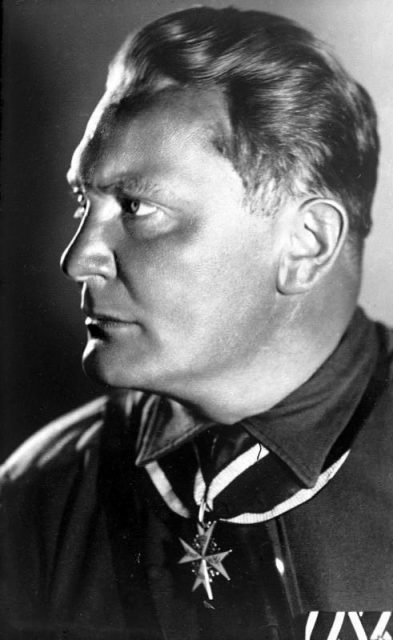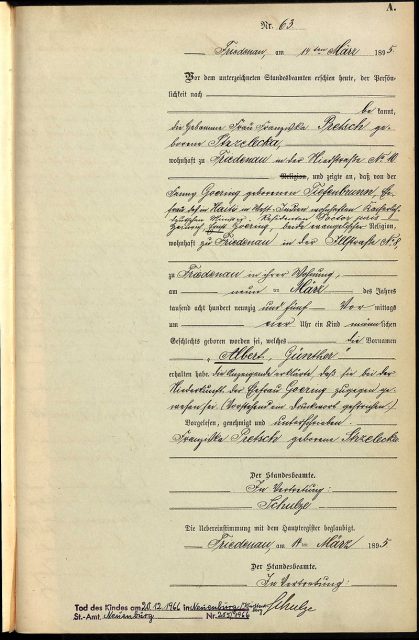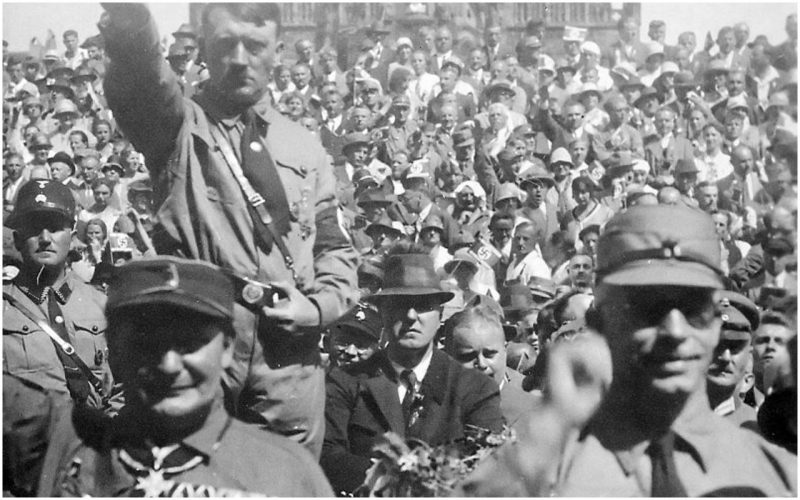Hermann Göring, President of the Reichstag and the second most powerful man in Hitler’s Germany, was definitely one of the worst of the Nazi war criminals. He was a ferocious militarist and a politician who always emphasized his deep devotion to the Nazi regime.
Numerous atrocities, which will always remain an indelible stain on the face of mankind, were committed under his direct orders during World War II. His family name continues to evoke dread and anguish: Throughout the second half of the 20th century, a number of German people with the family name Göring legally changed it even though most of them weren’t even related to the notorious Nazi.
Speaking of family, some members of Hermann Göring’s family wholeheartedly supported his military and political career. However, Albert Günther Göring, his younger brother, despised the Nazi ideology so much that he did everything in his power to fight the Third Reich’s cruel regime.
Albert graduated from the Technical University of München in the 1920s and wanted to devote his life to filmmaking. As the brutality of the Nazi regime progressed throughout the 1930s, he abandoned his lifelong dream and concentrated his efforts on helping those who were segregated and persecuted by the police state for their ethnicity, religion, sexual orientation, or political views.

In the beginning, his anti-Nazi activism consisted of small but meaningful acts of defiance. For instance, he would pick up a broom and join groups of Jewish women who were ordered to sweep the streets. The soldiers who spotted him were usually forced to send the women home because he would present his identification and refuse to stop sweeping. Since he was the brother of Hermann Göring, the soldiers were afraid that they would be severely punished if they let him humiliate himself in public.
From 1939 onward, the levels of Albert’s anti-Nazi activity intensified. He forged documents and helped a number of victimized families escape Germany; he was arrested several times by the Nazis under suspicion of crimes against the state, but the fact that he was Göring’s younger brother always helped him elude any serious punishment.
During most of World War II, he worked as the export director of Škoda Works in Czechoslovakia. While working there, Albert often used his influence and the fact that he was Göring’s brother to save people from concentration camps. He sent trucks to the camps and requested laborers, claiming that the Škoda Works were in desperate need of new workers. However, when the trucks full of people returned to the factories, he would order his subordinates to drive the people far away from the concentration camps, provide them with provisions, and release them.
Furthermore, Albert collaborated with the Czech Resistance and frequently encouraged his fellow anti-Nazi activists to conduct small acts of sabotage. He was a pacifist who detested killing and bloodshed, so he was never involved in any assassinations of Nazi officials, but he ordered his trusted colleagues to try and disrupt Nazi war supply lines to Czechoslovakia and to cut fuel pipes and pop tires on the trucks that drove German soldiers. He became an expert at forging his brother’s signature on official documents, and he used it to free a number of dissidents who were then able to escape the territories occupied by the Nazis.

CC BY-SA 4.0
When the war was over, numerous witnesses said that Albert Göring was an anti-Nazi activist who helped countless people escape certain death. Still, his noble deeds, which were inspired by altruism and a need for justice, were greatly overshadowed by the heinous crimes against humanity committed by his older brother.
He was shunned after the war because of his family name, and lived quietly until his death in 1966. (In 1946, his brother committed suicide by potassium cyanide the night before he was to be hanged.)
Nowadays, hardly anyone speaks of Albert Göring, yet he deserved to be remembered.
